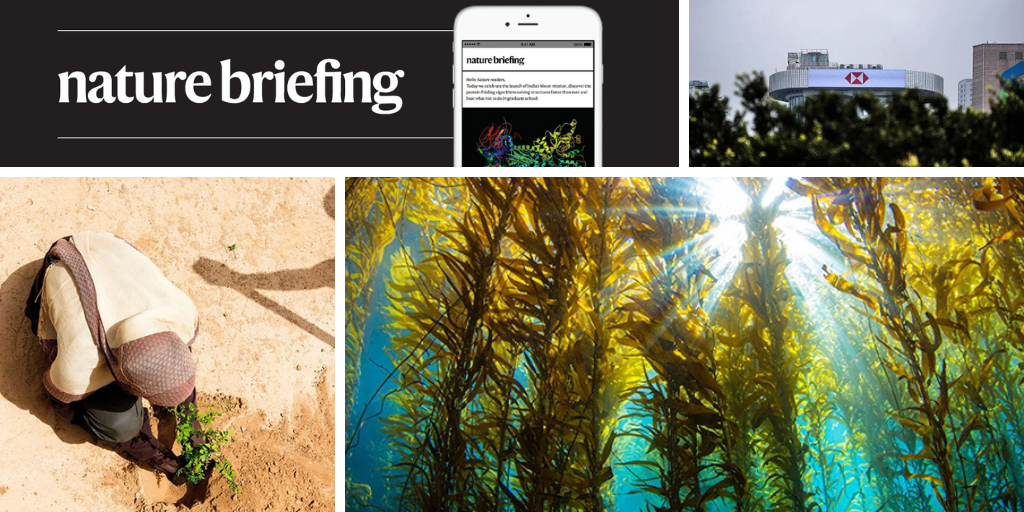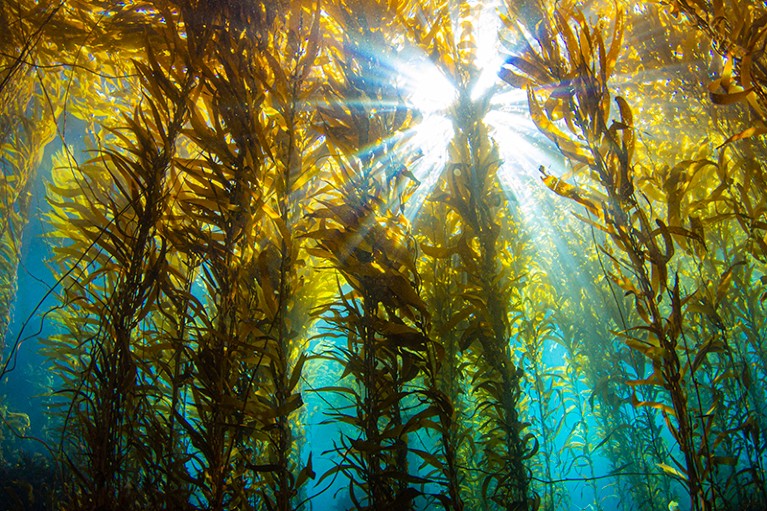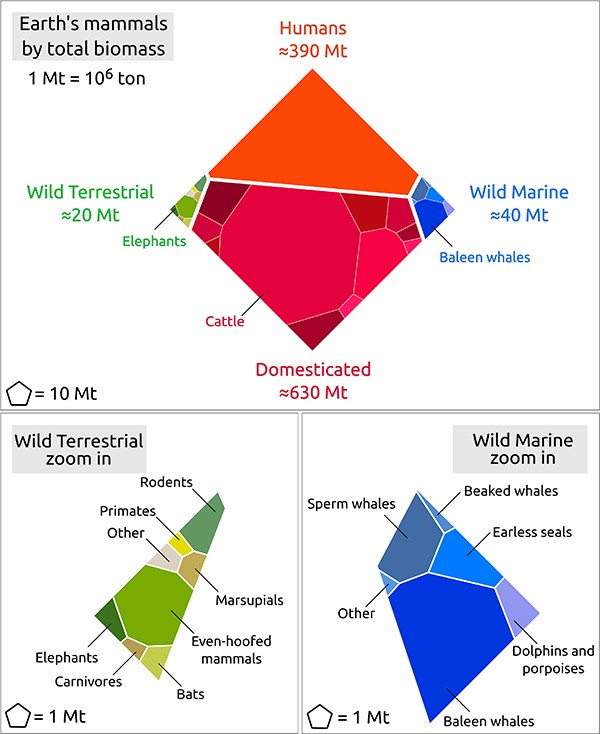Hello Nature readers, would you like to get this Briefing in your inbox free every day? Sign up here.
A kelp forest off the coast of California.Credit: Douglas Klug/Getty
The vast swathes of kelp forest growing along the world’s coastlines are estimated to generate US$500 billion a year. They provide a habitat for valuable fish and seafood species and remove nitrogen from seawater. Each type of kelp forest generates up to $147,100 per hectare annually, a figure that’s more than three times higher than previous estimates.
Reference: Nature Communications paper
Science teacher Ryan Hisner is one of an army of ‘community scientists’ helping researchers to track SARS-CoV-2’s evolution. They spend hours poring through genetic sequences to identify the mutations that SARS-CoV-2 spawns at an exceptionally fast pace. These variant-sleuths help trained public-health officials to ensure that anything notable is spotted quickly. “Even a couple days’ advance notice can be really helpful for updating vaccines if need be,” says virologist Tom Peacock.
The first light-powered brewer’s yeast (Saccharomyces cerevisiae) has been engineered. “It is extraordinary,” says biologist Felipe Santiago-Tirado. “To some extent, it’s like turning an animal into a plant.” A protein called rhodopsin was artificially inserted into yeast cells, giving the fungus the ability to use light as an energy source for some of its cellular functions. Under green light, light-powered yeast cells reproduce fast enough to outgrow normal yeast.
Reference: bioRxiv preprint (not peer reviewed)
Features & opinion
As early as 25 April, a Japanese firm called ispace will attempt to become the first private company to land successfully on the Moon. If the spacecraft touches down safely, it will deliver rovers from the Japan Aerospace Exploration Agency and from the United Arab Emirates. It will also mark the start of a new era in commercial lunar exploration. “The future is there,” says astrophysicist Medina Tanco, who leads a project to land a swarm of tiny Moon rovers. “You can consider the Moon a new economy.”
The 2007 global financial crisis opened regulators’ minds to the idea that ecology and infectious-disease science can avert future crises. Highly interconnected ‘superspreader’ banks, whose failure can rock an entire financial ecosystem, now need to hold bigger capital buffers. Recent bank failures — most notably Silicon Valley Bank — have renewed fears over financial instability. So far, these incidents have not caused contagion. “In my view it is too early to say we have averted a bank crisis,” says finance-network researcher Stefano Battiston.
In 2007, one of the world’s most ambitious ecological-restoration schemes launched: the Great Green Wall initiative aimed to restore a 7,000-kilometre swathe of land in 11 sub-Saharan countries, all by 2030. By 2020, only one-fifth of degraded land had been restored — and international donors have been pulling away from politically unstable countries. “Unkept promises fuel anger and mistrust, at the same time worsening both poverty and the environment,” argues a Nature editorial. “It’s essential that the original vision of Africa’s Great Green Wall is not filed away in the ‘too difficult’ box.”
Infographic of the week
Humans and livestock mammals far outweigh wild mammals, which account for just 6% of Earth’s mammal biomass. The weight of all house cats combined is nearly twice that of all African elephants, and pigs’ biomass is twice that of all wild land mammals. Almost half of the wild-mammal biomass is made up by even-hoofed mammals, such as deer and boar. Of wild mammals, most species, and most individual animals, are bats. (PNAS Commentary | 7 min read, Reference: PNAS paper) (L. Greenspoon et al./Proc. Natl Acad. Sci. USA (CC BY-NC-ND))









More News
Author Correction: Stepwise activation of a metabotropic glutamate receptor – Nature
Changing rainforest to plantations shifts tropical food webs
Streamlined skull helps foxes take a nosedive